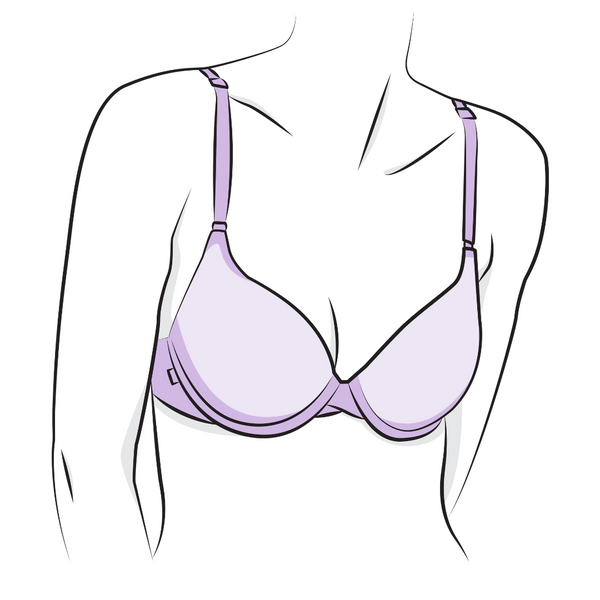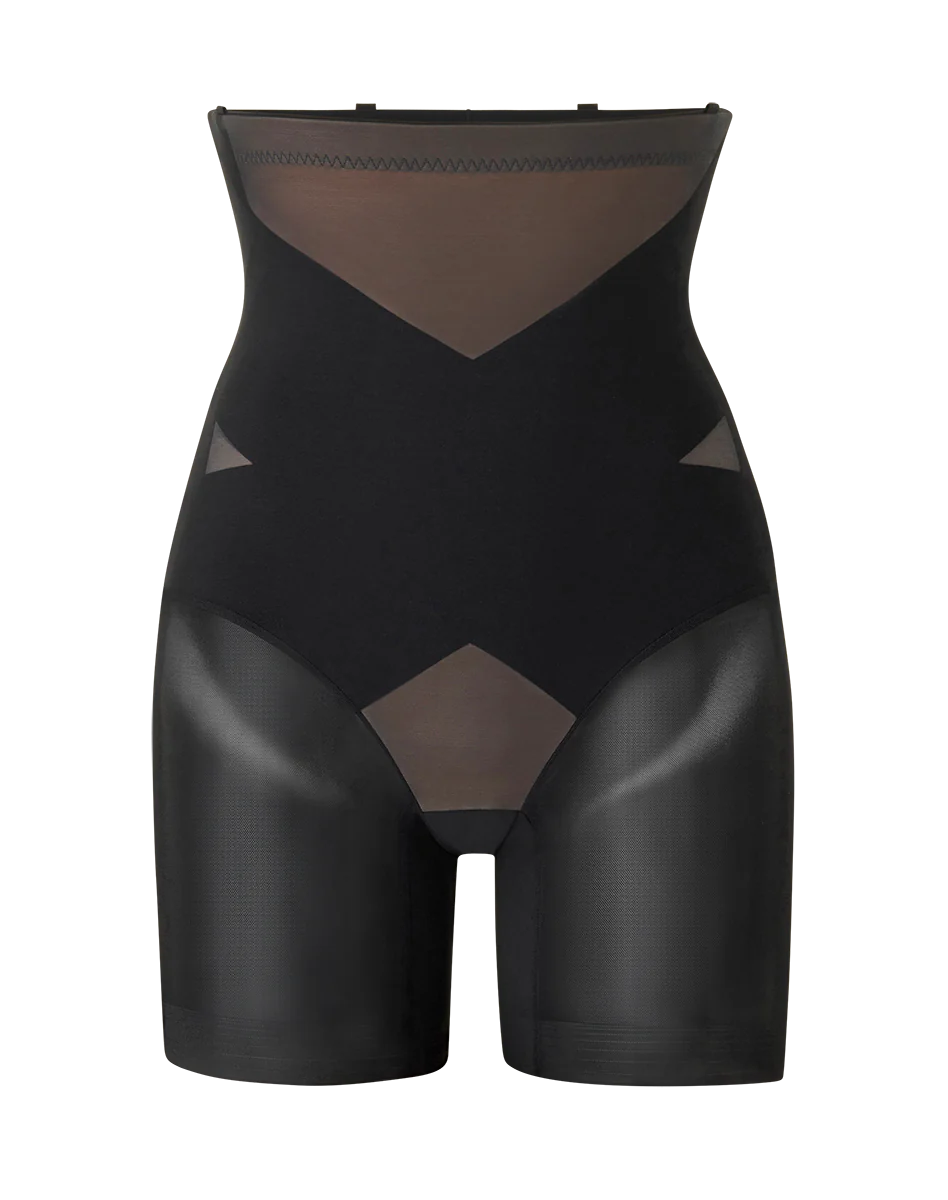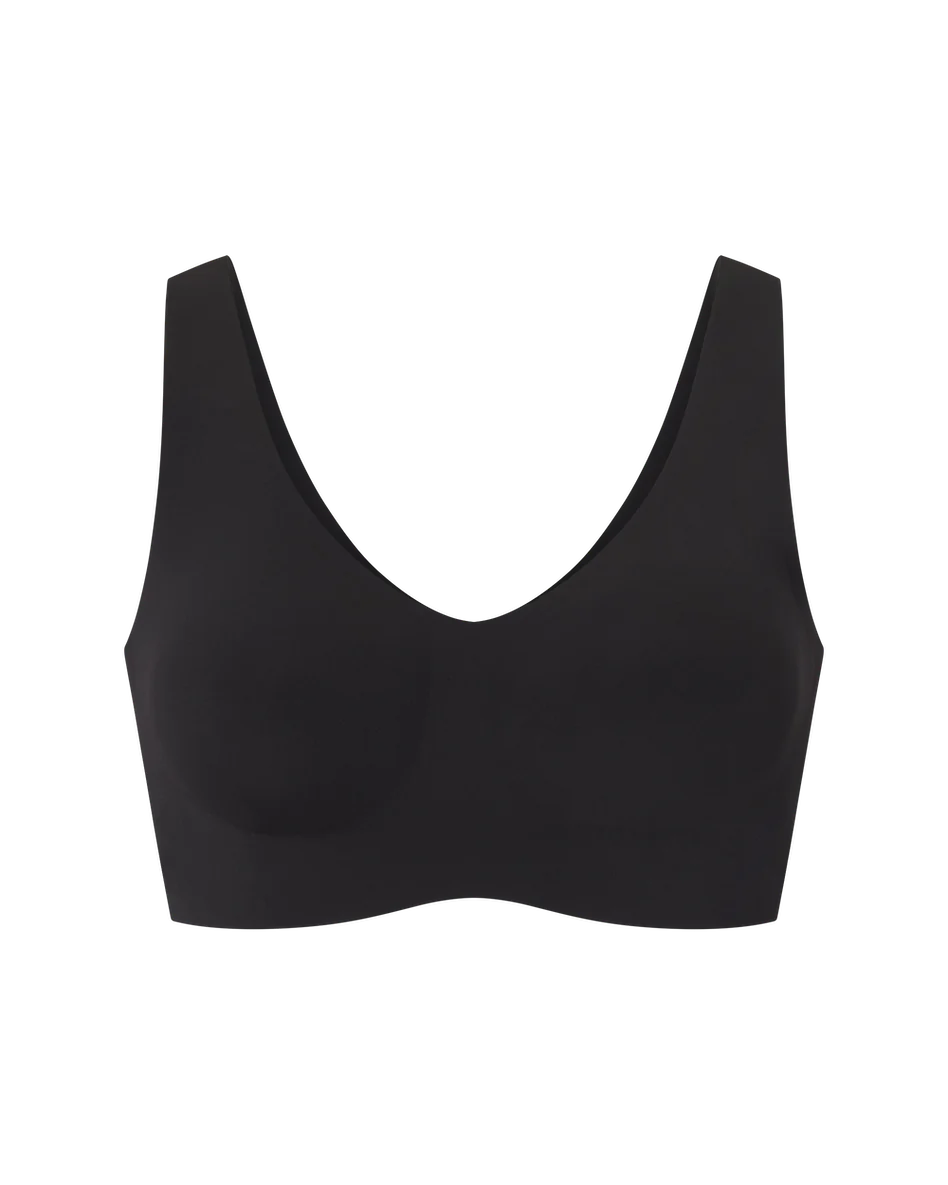The Ultimate Plus-Size Bra Guide
25 March 2025
by Sophie Weiss

What is a plus-size bra?
When we talk about plus-size bras, we’re speaking about any bra that uses plus-size bra construction techniques — things like more cup capacity, enhanced support, and heavier weighted fabrics. It’s less about a specific size, and more about the special features and techniques used to make the bra. When built correctly, a plus-size bra will feel comfortable on the body, will have enough lift and support, and won’t sag with body heat.
A great plus-size bra is an art, not a science. As bodies go up in size, there’s also a greater variation in shape and distribution of weight. Rather than simply scaling up a smaller bra, plus-size bra makers will create patterns that specifically account for those fluctuations to give bra wearers a more comfortable and supportive fit.
Finding your perfect fit
Typically, when bras are made, you’ll grade, or increase, the garment in size by a uniform amount to get larger bra sizes. Extended sizing is when you don’t have a break in your grading and you use the same equation to produce a full size range. However, if you’re in the market for a plus-size bra, you want to look for a bra producer that takes the time to create bras specifically for a plus-size body as opposed to simply cross-grading all the way through their size range.
Every time you create a new cup size, you have to create a mold, which can be expensive and time consuming. This is why some brands opt not to do this. It’s the responsibility of brands who serve a plus-size customer to do the right thing and take on the extra time and investment. At Honeylove, we always choose the slow, steady, and sometimes more expensive route if it means creating a better product. Not every brand prioritizes this, but when you’re shopping for bras, you should find companies that value this type of quality and workmanship and take the extra steps.
Best plus-size bra styles
These days, the vast majority of bra styles are available in plus-size. While some styles must be modified in order to provide the right amount of support and coverage, you should feel empowered to experiment with different shapes and looks based on your preferences and outfits.
Traditionally, the best plus-size bras offer support, lift, and smoothing. These styles are a great place to start:
T-shirt bra

T-shirt bras are designed to be seamless and feature smooth, molded cups that give breasts a natural, rounded shape.
Full cup bra

A full cup bra features cups that fully cover the breasts. Because each breast is encapsulated completely within the bra cups, this bra will not create cleavage or reveal any of the chest.
Longline bra

A longline bra features an extended bra band that hits lower on your torso. The bra band could range from a couple of inches long, or it could hit as far down as your waistline. The extended band can add additional support, comfort, and even waistline slimming.
A minimizer or sports bra
Minimizer bras are designed to make your chest appear smaller without distorting their natural shape. Compression throughout the bust gives extra support, coverage, and shaping. Its cups are made of firm, non-stretch fabrics to condense breast tissue for a more minimal presentation.
Front-closure bra

Front-closure bras fasten at the center of your chest instead of at the back, making it easier to take the bra on and off. The additional tension can enhance lift and add extra support.
How to choose a plus-size bra
Look for bras that have solutions. If the issue is that you’re fleshier in the back, then look for a bra that is made with that in mind. If you’re someone that doesn’t like how full you are (for example, it prevents you from wearing button downs), look for comfortable minimizers. For asymmetry, you’ll want a push-up with removable inserts. There’s no one-size-fits-all answer; it’s about finding what makes you feel happy and confident.
Plus-size bras that help with back fat
Look for a bra with wide side wings and smoothing, compressive fabric. Honeylove’s V-Neck Bra is the ultimate underwire-free smoothing bra. Made with wide, thick straps that lay gently against the skin and a seam-free design that disappears under clothing, this bra is specifically designed to eliminate bulging.
Plus-size bras that help with sagging
A t-shirt bra with an underwire is the best solution to help with sagging. This classic style is extremely common and versatile. Additionally, push-up bras can be a great solution for anyone experiencing volume loss as the angled pads can fill up some of the extra room.
Is DDD the same as F?
Yes, these sizes are interchangeable. Sizes DD and DDD are standard in the United States, and sizes E and F are more common internationally. Though the label may fluctuate amongst different brands, the cup size will be the same size. Increasingly, you may also see this size written as DD/E or DDD/F to help eliminate confusion.
Sophie Weiss
Sophie Weiss is a writer and bra expert based in Los Angeles.
Shop the story
CrossOver Bra
Wireless Bra
Honeylove's signature mesh details take this wireless bra to the next level. This wireless bra features a bonded cradle that replaces underwire for maximum comfort and support. A smoothing bra wing eliminates bulges at the back and underarm. Adjustable, convertible bra straps let you modify your fit. Premium four-way stretch fabric molds and expands to your shape.
LiftWear Cami
Bra Top
This shapewear cami features a built-in, molded, wireless bra that lifts without sacrificing comfort. Targeted X compression uses doubleknit panels to shape your back and tummy, while releasing everywhere else for maximum comfort. Silicone gripper at the bottom hem keeps the the top anchored as you move. Adjustable straps let you customize your fit. The cami's versatile design can be worn on its own or under clothing.

Silhouette Bra
Wireless Bra
Flat, stretch silicone is coated in soft velvetine flocking for flexible support. This wireless bra features a bonded cradle that replaces underwire for maximum comfort and support. A smoothing bra wing eliminates bulges at the back and underarm. Raw cut, seamless bra construction disappears under clothes. Adjustable, convertible bra straps let you modify your fit.



































